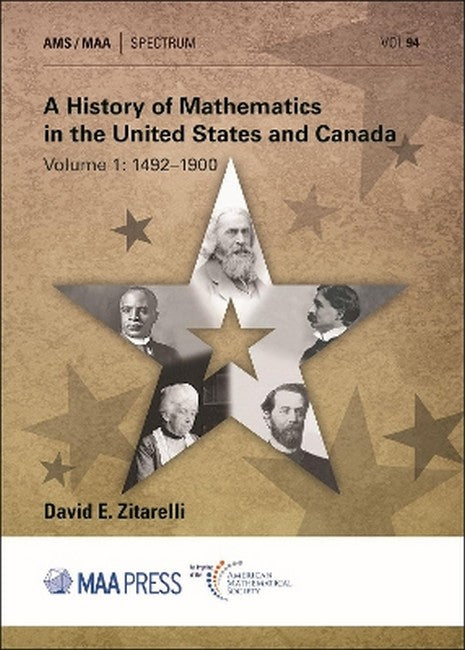David E. Zitarelli, Temple University, Philadelphia, PA.
Request Academic Copy
Please copy the ISBN for submitting review copy form
Description
Chapters Introduction Part I. Colonial Era and Period of Confederation, 1492-1800 Beginnings Independence Transition 1776: The patriot Part II. New republic, 1800-1876 The age of Bowditch The age of Peirce Transition 1876: Story vs. Klein Part III. Research community, 1876-1900 Sylvester, Klein, AMS Chicago and Clark The 1890s Transition 1900: Hilbert's American colony
Students and others who pick up this volume will find so many life stories that surely they will find one to whom they can relate. Indeed, Zitarelli strongly believed in the value of history of mathematics for humanizing mathematics. His genuine concern for other people carried over into how he treated students and colleagues, and that trait is also present in this book in his conversational, storytelling-oriented writing style.-- Amy Ackerberg-Hastings (Iowa State University), MAA Reviews Squeezing 500 years of development into a book of 430 pages leads one to guess that Zitarelli's book may serve as the foundation for many future works describing parts of the development and/or the individuals involved in much more detail and with many more detailed descriptions of the mathematics invented along the way. The book under review gives an impressing description of the many persons and institutions having been instrumental in the development of mathematical teaching and research in the US and in Canada. It is informative, very readable, and contains a wealth of information.-- Thomas Sonar (Braunschweig), zbMATHOpen The hundreds (yes, hundreds) of biographical sketches of mathematicians that are the bedrock of the book are cleverly and usefully organized into topics within each chapter. All of them sparkle with Zitarelli's diligent and dogged research.-- Scott Guthery, MAA Reviews

